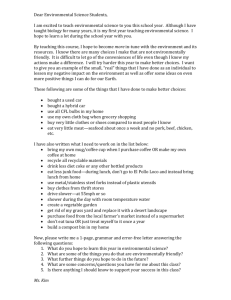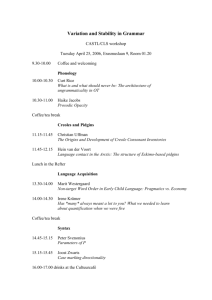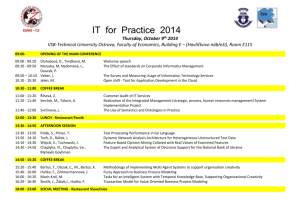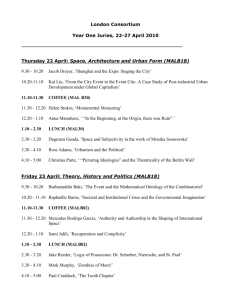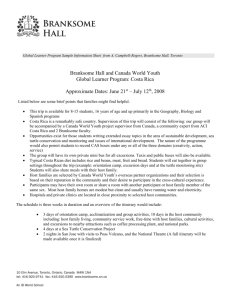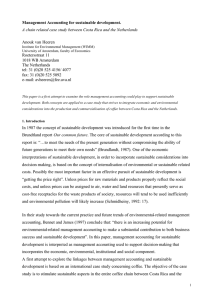Integrated chain management applied to the coffee chain
advertisement
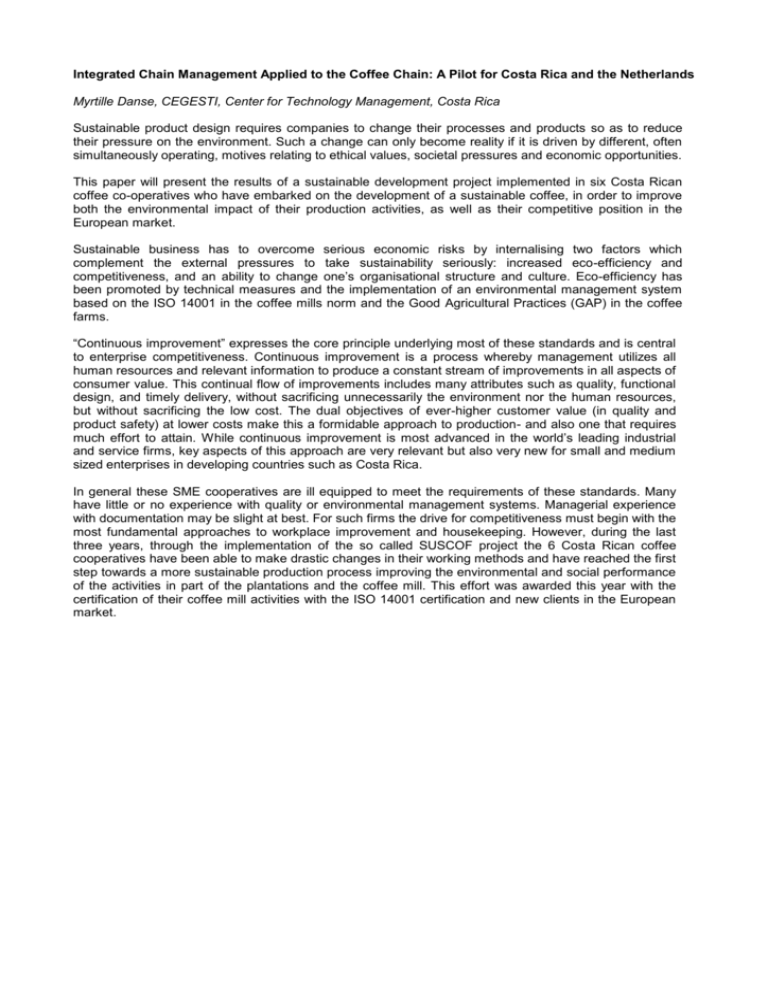
Integrated Chain Management Applied to the Coffee Chain: A Pilot for Costa Rica and the Netherlands Myrtille Danse, CEGESTI, Center for Technology Management, Costa Rica Sustainable product design requires companies to change their processes and products so as to reduce their pressure on the environment. Such a change can only become reality if it is driven by different, often simultaneously operating, motives relating to ethical values, societal pressures and economic opportunities. This paper will present the results of a sustainable development project implemented in six Costa Rican coffee co-operatives who have embarked on the development of a sustainable coffee, in order to improve both the environmental impact of their production activities, as well as their competitive position in the European market. Sustainable business has to overcome serious economic risks by internalising two factors which complement the external pressures to take sustainability seriously: increased eco-efficiency and competitiveness, and an ability to change one’s organisational structure and culture. Eco-efficiency has been promoted by technical measures and the implementation of an environmental management system based on the ISO 14001 in the coffee mills norm and the Good Agricultural Practices (GAP) in the coffee farms. “Continuous improvement” expresses the core principle underlying most of these standards and is central to enterprise competitiveness. Continuous improvement is a process whereby management utilizes all human resources and relevant information to produce a constant stream of improvements in all aspects of consumer value. This continual flow of improvements includes many attributes such as quality, functional design, and timely delivery, without sacrificing unnecessarily the environment nor the human resources, but without sacrificing the low cost. The dual objectives of ever-higher customer value (in quality and product safety) at lower costs make this a formidable approach to production- and also one that requires much effort to attain. While continuous improvement is most advanced in the world’s leading industrial and service firms, key aspects of this approach are very relevant but also very new for small and medium sized enterprises in developing countries such as Costa Rica. In general these SME cooperatives are ill equipped to meet the requirements of these standards. Many have little or no experience with quality or environmental management systems. Managerial experience with documentation may be slight at best. For such firms the drive for competitiveness must begin with the most fundamental approaches to workplace improvement and housekeeping. However, during the last three years, through the implementation of the so called SUSCOF project the 6 Costa Rican coffee cooperatives have been able to make drastic changes in their working methods and have reached the first step towards a more sustainable production process improving the environmental and social performance of the activities in part of the plantations and the coffee mill. This effort was awarded this year with the certification of their coffee mill activities with the ISO 14001 certification and new clients in the European market.
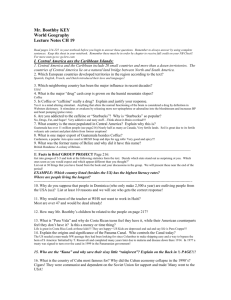
![저기요[jeo-gi-yo] - WordPress.com](http://s2.studylib.net/store/data/005572742_1-676dcc06fe6d6aaa8f3ba5da35df9fe7-300x300.png)
